Iness Rychlik
Dark Feminism
Iness Rychlik is a Polish-born photographer and filmmaker with a particular interest in historical drama. Despite her severe myopia, she has been dedicated to visual storytelling for over a decade.
Iness graduated with First Class Honours in Film from Screen Academy Scotland. Set in Victorian London, her final-year film ‘The Dark Box’ follows an unhappily married woman, who pursues photography to escape from her oppressive relationship. ‘The Dark Box’ premiered at Camerimage, where Iness received a Golden Tadpole nomination for her cinematography. Most recently, she shot and directed two mini-documentaries about art for the BBC Scotland.
Rychlik is recognised for her dark feminine erotica, which has been awarded and exhibited all around the world. She is fascinated by the idea of conveying sexuality and cruelty in a subtle evocative way. Her conceptual self-portraits provoke the viewer’s imagination, rather than satisfy it.
Here’s what she had to share with us.
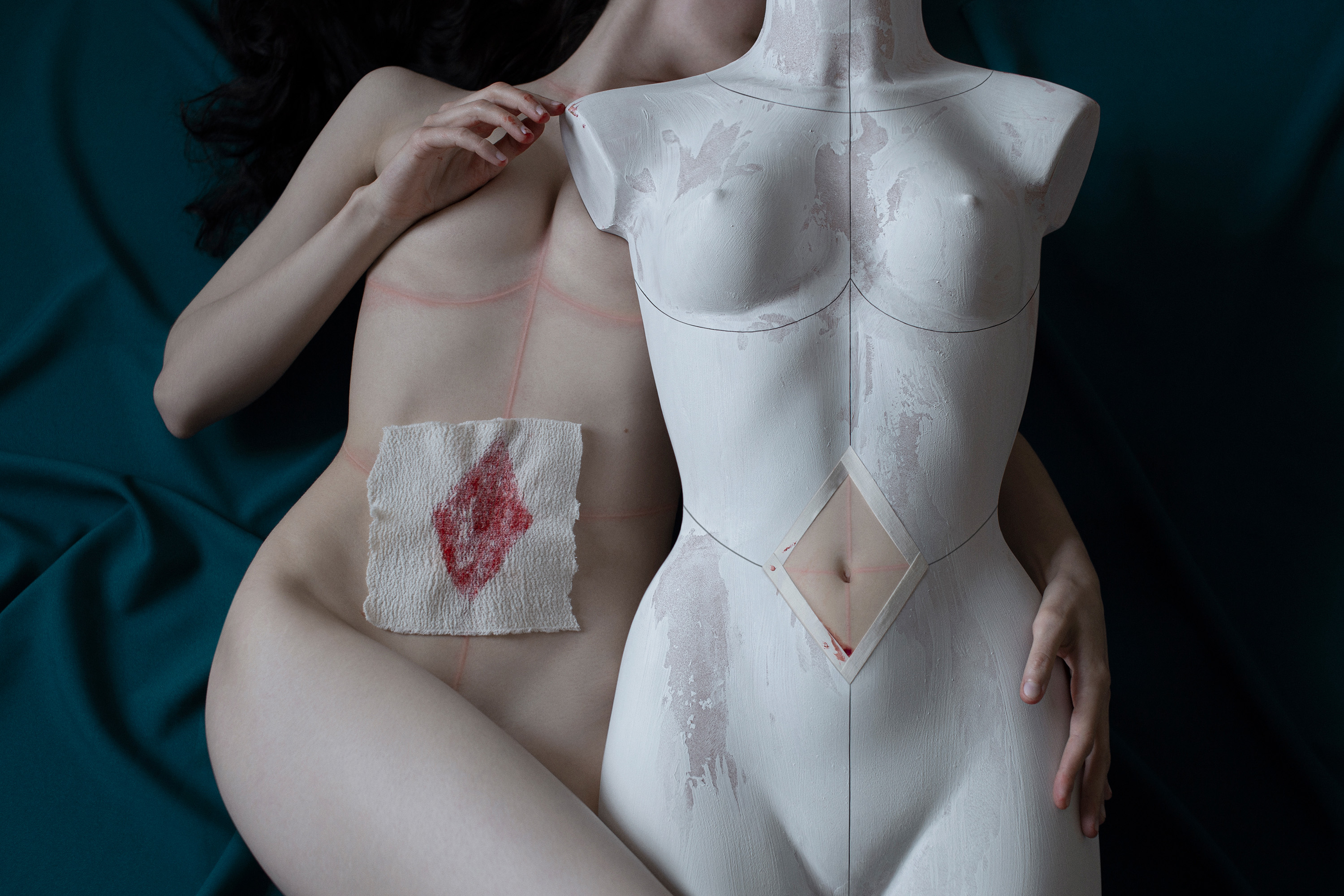
Fabrik: Hello Iness, we’re so delighted to have you as a Fabrik Hero! To begin, we'd love for you to share a bit more about yourself in your own words?
Iness Rychlik: "I’m a Polish-born artist, who has been living and working in the UK for the past eight years. From a very young age, I have felt strangely drawn to both still and moving images. As a child, I would meticulously arrange my Barbie dolls to film them with my grandfather’s Sony camcorder. In my pre-teens, I took up a digital still camera – while I absolutely loved photographing my sisters in old second-hand dresses, I’m not sure if the feeling was mutual. Even at that early point of my artistic journey, I was incredibly inspired by the classic nineteenth-century novels and their screen adaptations. I moved to Scotland to pursue a Film degree, with a particular goal of focusing on period drama."
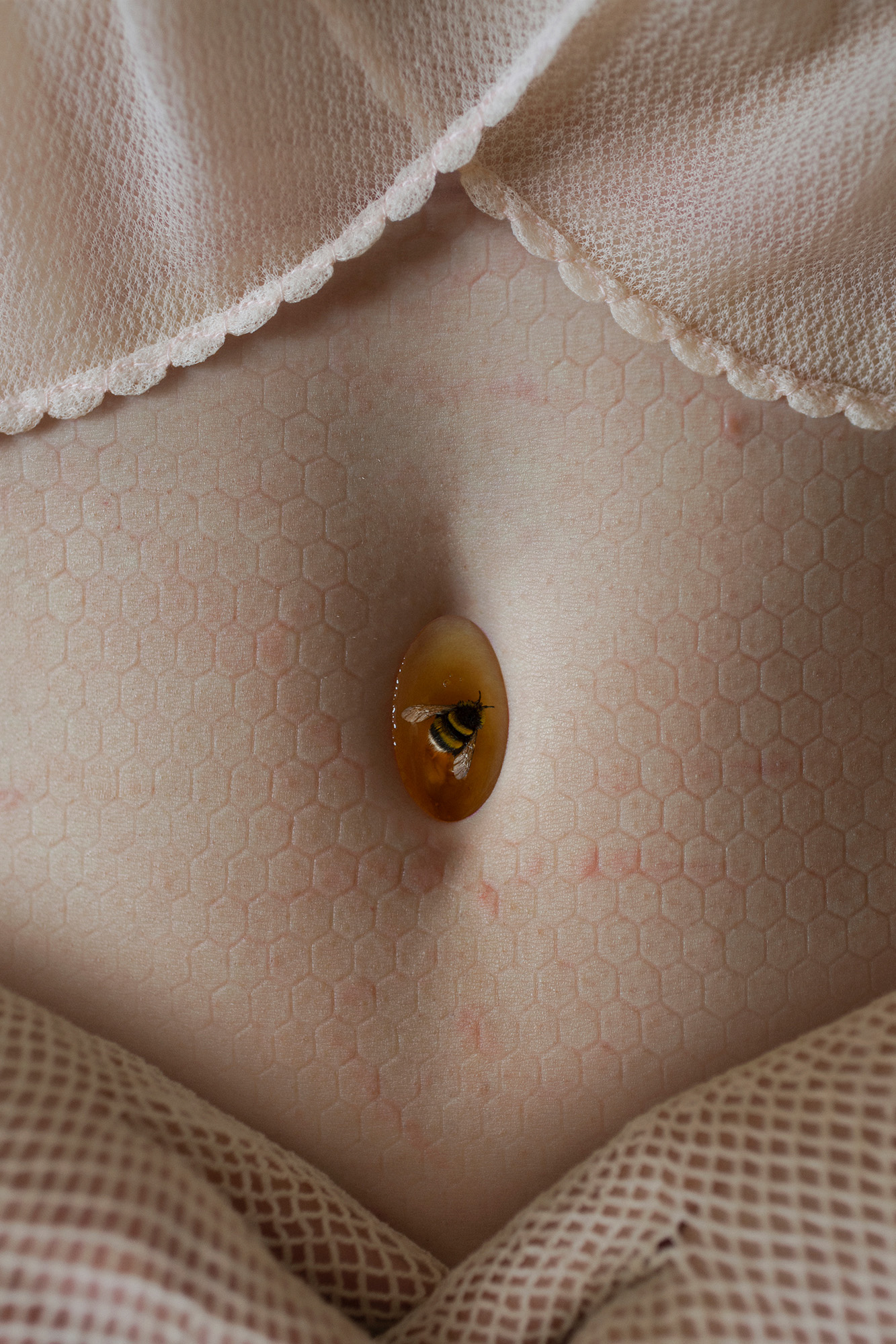
Fabrik: You mention you have a particular interest in historical drama. What era are you drawn to and how do you feel this reflects in your work?
Iness Rychlik: "I’m fascinated by the nineteenth-century Britain, which is one of the reasons I had decided to study in Edinburgh – it is such a beautifully atmospheric and historical place. As my final- year project at university, I wrote, directed and shot my own micro-budget period drama. Set in Victorian London, ‘The Dark Box’ follows an unhappily married woman, who pursues photography to escape from her oppressive marriage. It is one of the most challenging and rewarding projects I have ever taken on.
In my self-portrait photography, I often use antique garments or props to draw visual parallels between my experiences as a woman and the inferior female position in the nineteenth century. However, my work is above all personal and symbolic – I allow myself a degree of artistic license."
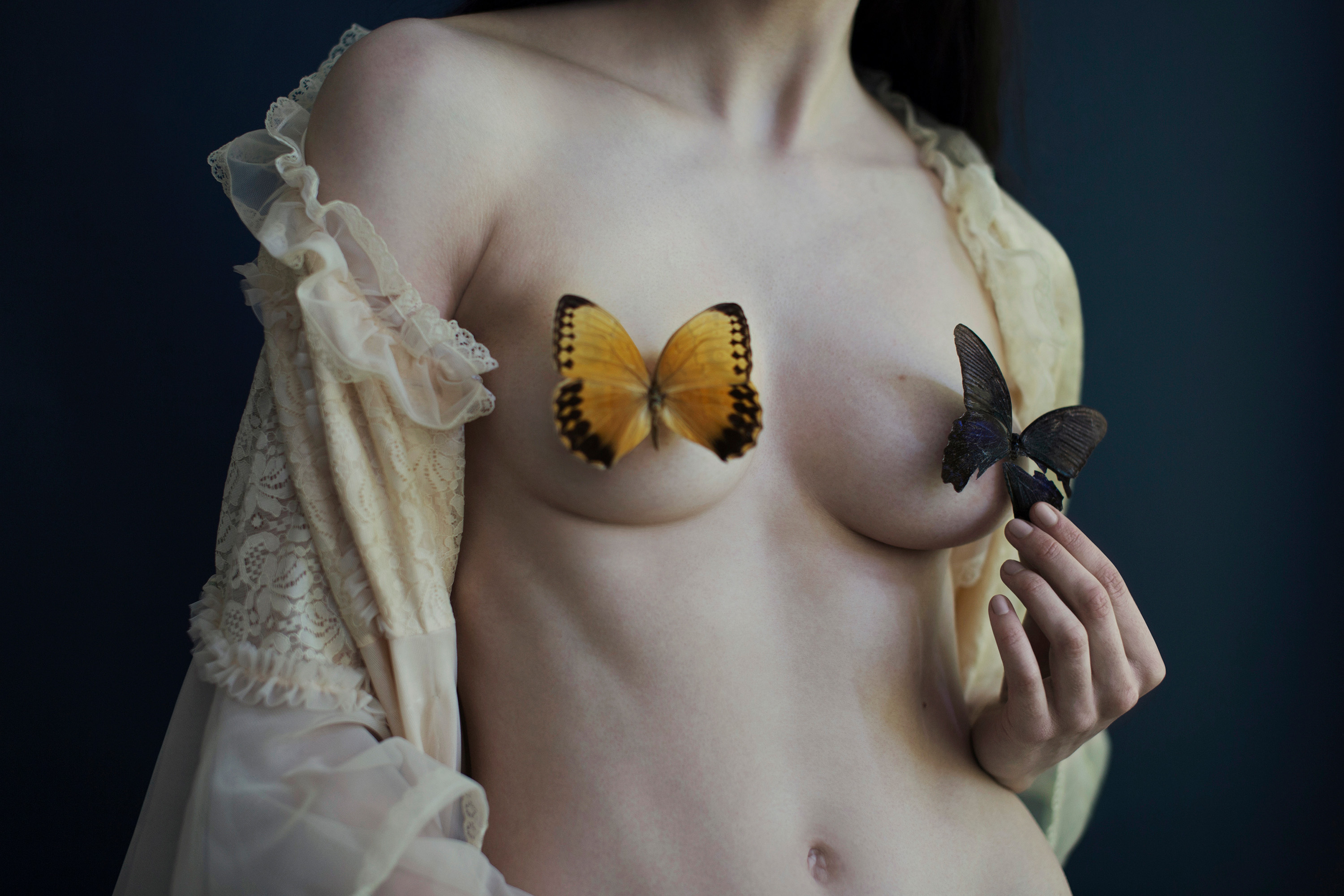
"[…]The thoughts I have been dealing with are hardly bright or cheerful, but art allows me to channel them in a productive and creative way. It also brings me solace in terms of coping with my hypersensitive skin disease."
Fabrik: What draws you to exploring and conveying themes of sexuality and cruelty? And do you explore those themes independently at all?
Iness Rychlik: "My desire for self-expression is a driving force behind all of my photographs. The thoughts I have been dealing with are hardly bright or cheerful, but art allows me to channel them in a productive and creative way. It also brings me solace in terms of coping with my hypersensitive skin disease.
Although often intertwined, I have created images that explore either sexuality or violence independently. For example, there is nothing erotic about ‘The Edge of Cruelty’, which is my response to the recent abortion ban in Poland. I wish more people understood that an exposed body part is not necessarily sexual – particularly in relation to some amazing pro-choice activists, whose performances involve partial nudity."
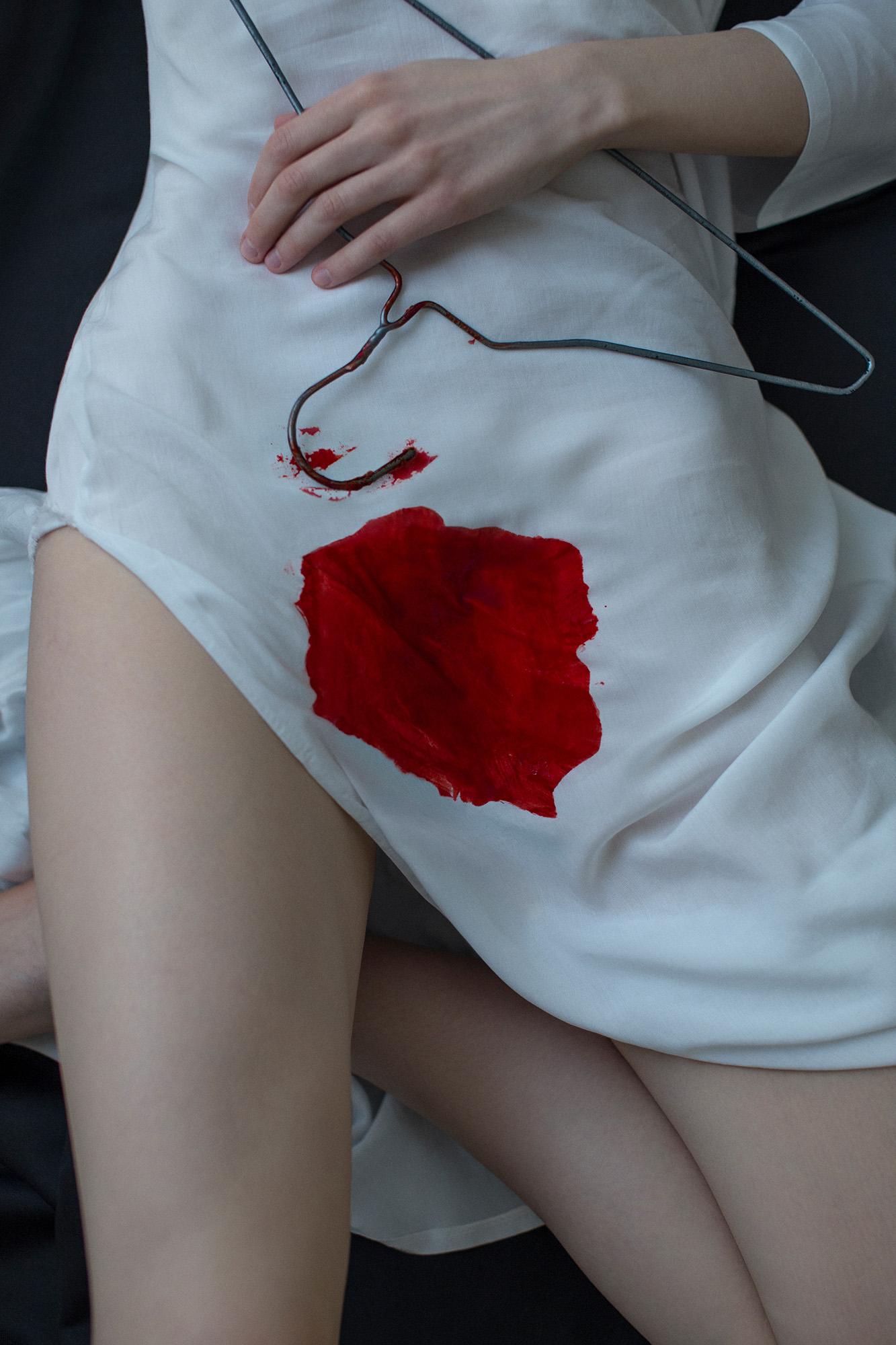
Fabrik: ‘The Edge of Subtlety’ has become symbolic during the Poland abortion ruling protests; can you tell us more about your intents and message behind the image?
Iness Rychlik: "This self-portrait is a direct criticism of the Constitutional Tribunal’s ruling, which imposed anear total abortion ban even for extreme fetal abnormalities. It depicts a sense of desperation and the dangers of a self-induced abortion, performed in a non-medical setting. The red blood stain forms the map outlines of Poland. I tend to express my ideas in a less explicit way, but in this case it was too late for subtlety.
While I have been called shameless and disgusting, ‘The Edge of Subtlety’ has – quite incredibly – resonated with thousands of people. It is truly moving to see it being carried like a sign by the protesters in various cities in Poland and beyond."
"In my self-portrait photography, I often use antique garments or props to draw visual parallels between my experiences as a woman and the inferior female position in the nineteenth century."
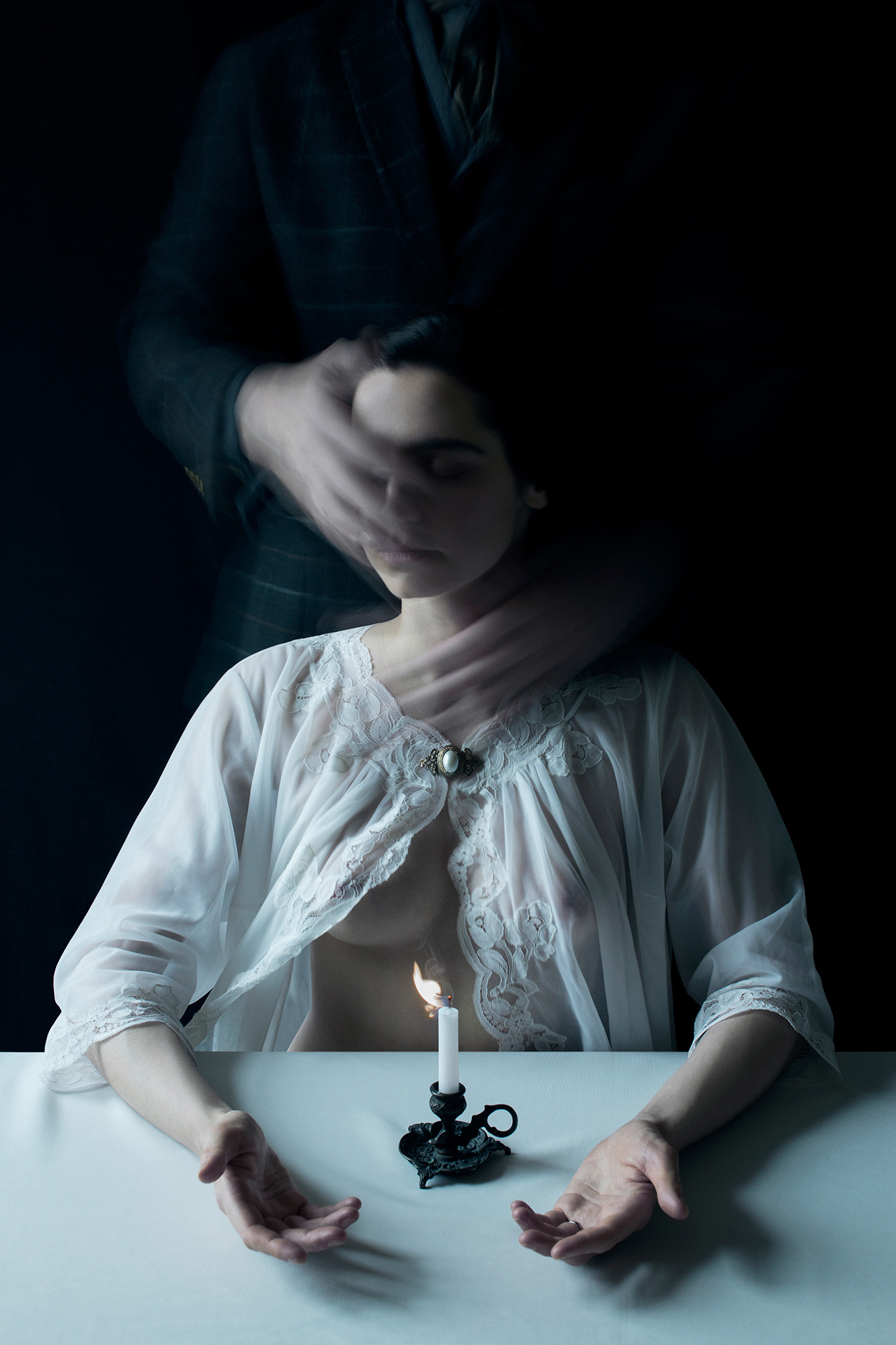
Fabrik: Could you share a bit more about your creative process? How do you shoot your self- portraits?
Iness Rychlik: "It is a very time-consuming process, which involves multiple stages: from clarifying the idea, through prop-hunting and prop-making, extensive test-shooting, to the actual shoot and post- production. I work on numerous ideas at the same time – at the moment I have around six, all in the different stages of creation."
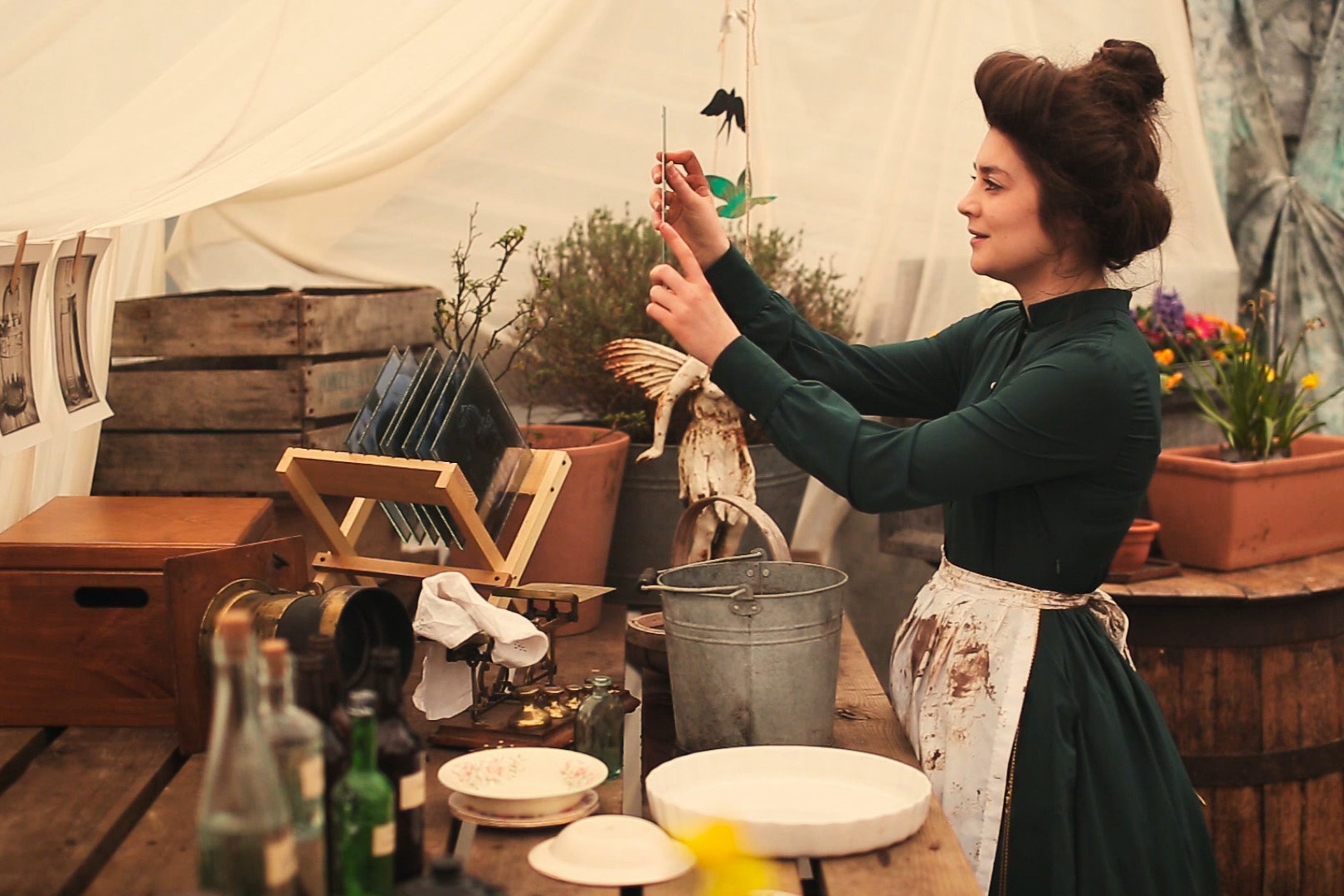
Fabrik: With many of your works being exhibited all around the world, is there a particular milestone within your career as a photographer, artist and filmmaker that you feel most proud of?
Iness Rychlik: "As a photographer, I consider the Dorothy Circus Gallery exhibitions in London and Rome to be a very significant milestone. As a filmmaker, receiving a Golden Tadpole nomination at Camerimage for ‘The Dark Box’ was a remarkable experience. I worked double shifts as a cleaner to fund my degree and this ‘overambitious’ student film. When I moved to London right after graduation, I continued to work in the service industry. I got the e-mail as I was on the tube, making my way to a ten- hour waitressing job. The realization that the long years of struggles and sacrifices in a foreign country have paid off was overwhelming. Somewhere between Hammersmith and Earl’s Court, I broke down in tears."
Fabrik: What are your plans for the future? Do you have any projects that you’re currently working on?
Iness Rychlik: "I’m going to continue working on my self-portraits; I hope to incorporate filmmaking into my conceptual photography in the near future. It’s going to be a huge logistical challenge, but apparently I don’t enjoy doing anything on the easy mode."
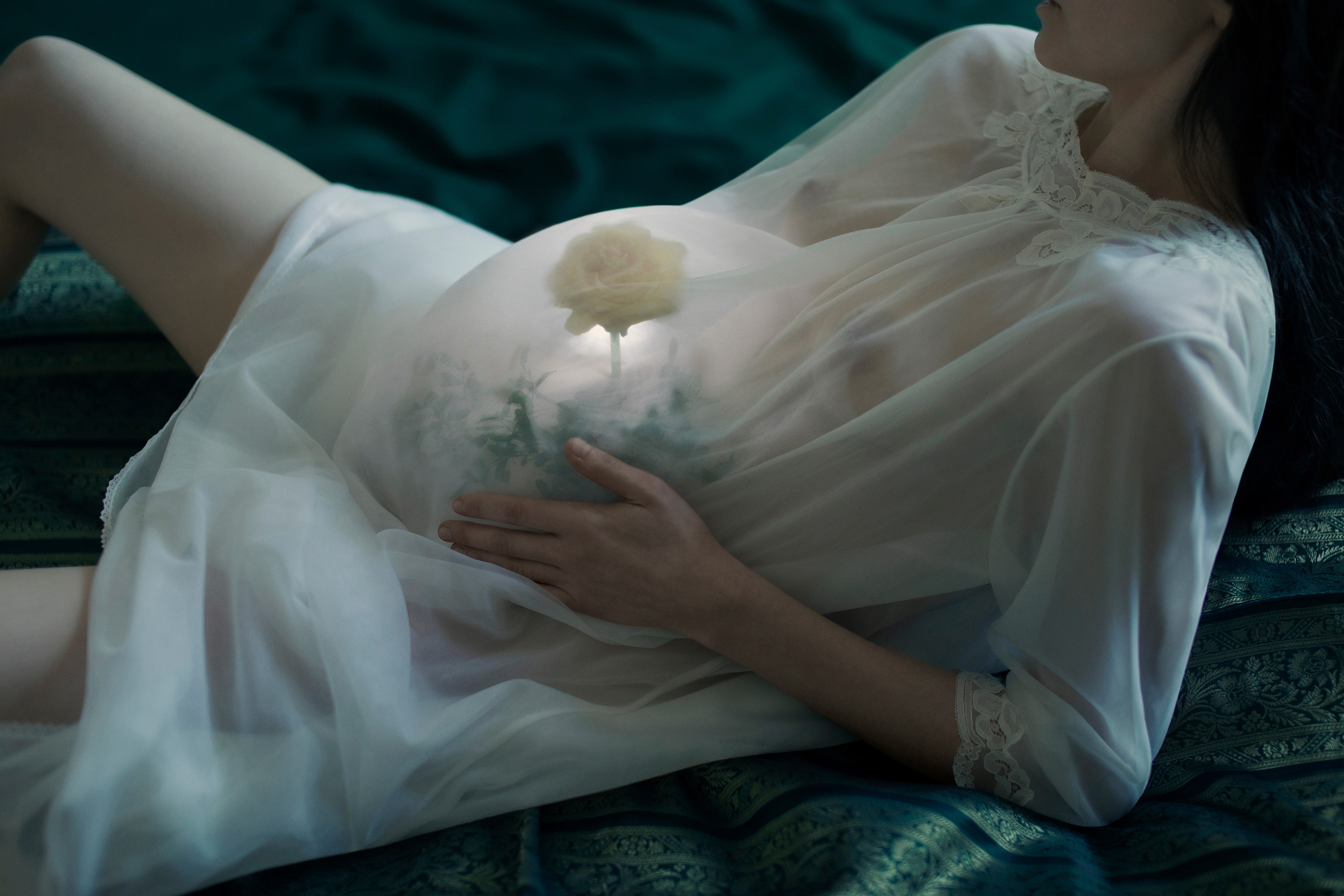
Fabrik: Final question: What do you like most about Fabrik? What's your favourite feature?
Iness Rychlik: "I love the selection of your templates, which makes it easy to make my portfolio look exactly the way I want it. What I also appreciate is your wonderful customer service; any questions are answered promptly, no matter how silly they might be.”
Iness uses Canvas, a feed-style theme featuring a sidebar and layout options aimed at providing more control over the placement of text and images. A great choice for portfolios that require images to be displayed uncropped or in portrait format.








